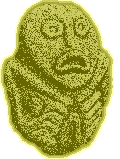 | |

Resources - not new, but maybe readable. Gardner and Leland for the moment, with the Mabinogion along... someday. The written works of Gerald Gardner form the basis, one way or another, for much of modern wicca. As with many people, his written work was adapted many times over the years. This setting of the widely available text should make it simple to compare various versions, read any one version, or assemble your own preferred sequence. Directly, indirectly or from a common source, Gardner's work drew on an earlier publication by the anthropologist Charles Leland, "Aradia" (the Gospel of the Witches). Leland, writing at the end of the nineteenth century was, for his day, a good anthropologist. He may have been the first to apply the questionnaire technique in the field: he was certainly not the last to underestimate the effect of "leading the witness" in the composition of questionnaires. Aradia remains a classic. A setting of his "Roman Etruscan Remains" may follow "The Mabinogion". Yeah, right. Oh, and the text as it stands blows my other pseudonym wide open. The stuff came from a site on Xoom when various free web sites started to change their rules about copyright. I'll fix that when I finish fixing the other stuff. Note: the word "wicca" was consciously derived from the Saxon word "wicce", by modern-day practitioners who wanted to distance themselves from the often negative connotations of the word "witchcraft". "Wicce" is pronounced with a soft "ch" as "wich", and meaning "wise", but it's conventional to use the hard version of the pronunciation, "wick-a". [back] | |